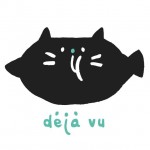Unlike the 2018 Amazon bestseller list, in which eight out of 10 books were published in the same year, only 10% of China’s bestselling books were published in 2018. According to a survey, 83% of the books sold in China in 2018 were not published in that year and almost 32% of the books were published in the preceding three years.
While these statistics suggest that Chinese readers prefer secondhand books, in reality few Chinese book lovers would buy a used book as their first choice as many associate secondhand books with dirty appearance and discolored, dog-ear pages.
It was in such a market that the used books online platform, Duozhuayu was launched in 2017 to collect, re and sell secondhand books at an attractive price.
Ozone sterilization
Before Duozhuayu, many book lovers sold used books as waste paper, threw them away or sold them directly to individual buyers. Through WeChat or Duozhuayu's own app, customers can now buy used books from Duozhuayu for just 30%–50% of the price of new books and sell the books back to Duozhuayu after reading the books.
To ensure the books offered to customers are nearly as new as the new ones, Duozhuayu collects only well-preserved secondhand books. Every book is then reconditioned manually, sterilized in ozone – a process that can kill 99% of bacteria – and is covered with plastic.
“There was no existing information online telling us how to repair a book,” said Duozhuayu's founder Wei Ying, “We built the whole process from the ground up, and tried everything including ethanol, sandpaper, pressure cutting, ultraviolet light and ozone.”
Unlike some secondhand goods recycling platforms that adopt a C2C model where users sell used books directly to individual buyers, Duozhuayu employs a C2B2C model in which users sell their used books directly to the platform in bulk. This comes in handy when sellers plan to move to another place and want to quickly get rid of all their unwanted used books.
Algorithm to predict demand
Initially, Duozhuayu allowed users to sell any book on its platform as long as each book was well preserved. A problem quickly arose. Regardless of the price, some books would just not sell, leading Duozhuayu to change the way it accepted books for resale, excluding, for example, textbooks, books about healthy eating and books published before 2004.
However, Duozhuayu's rules were also flexible to avoid good books being permanently excluded. Those carefully selected books have helped attract its core users today, mostly the highly educated, true book lovers.
Later, Duozhuayu came up with a better idea to choose its stock of books: an algorithm. By feeding transaction data into its algorithm, Duozhuayu is now able to predict the demand for a certain book, which helps it decide if a book should be rejected. By using the turnover rate of the inventory and the preset profit margin, Duozhuayu’s algorithm can also determine the price of any book it buys or sells.
For example, the algorithm works out that a book about China’s Spring and Autumn Period by Xiong Yi could be sold at a price higher than its original price when new because it is now rare and not easily available. On the other hand, the algorithm also works out that a book on the relationship between someone's character and the stars will only fetch RMB 3.
The algorithm is evolving and learns from Duozhuayu's transactions. Some of the books that were rejected in the past could be accepted by Duozhuayu later as its user base expands and demand for books change. "Our competitors cannot just copy our price because the algorithm we have built is tailored to our readership," said Wei.
Circular economy
Wei, who was formerly the market director of China's largest online C2C secondhand trading platform Xianyu, believes in the growth potential of China's secondhand economy.
"After the bubble of over-consumption, people will start to reflect and the secondhand economy will grow," said Wei. "That’s what happened to the US and Japan, and I think that is going to happen in China."
The data supports her judgement. Since it was founded, Duozhuayu's users have grown 55% annually. The market is expected to reach trillions of RMB by 2020 with a 30% annual growth from 2017.
Duozhuayu had maintained from day one that it was not only eyeing the used books market. In June 2019, the platform began to accept other secondhand goods. These included adornment and tech products, such as Swarovski earrings, cotton print fabric and Sennheiser headphones.
It is a big market where Duozhuayu might face many competitors from other secondhand trading platforms to e-commerce players that sell cheap goods. "But the things that are good for earth are worth doing," said Wei.













